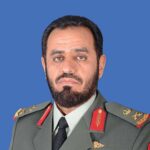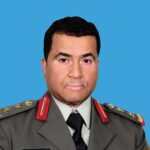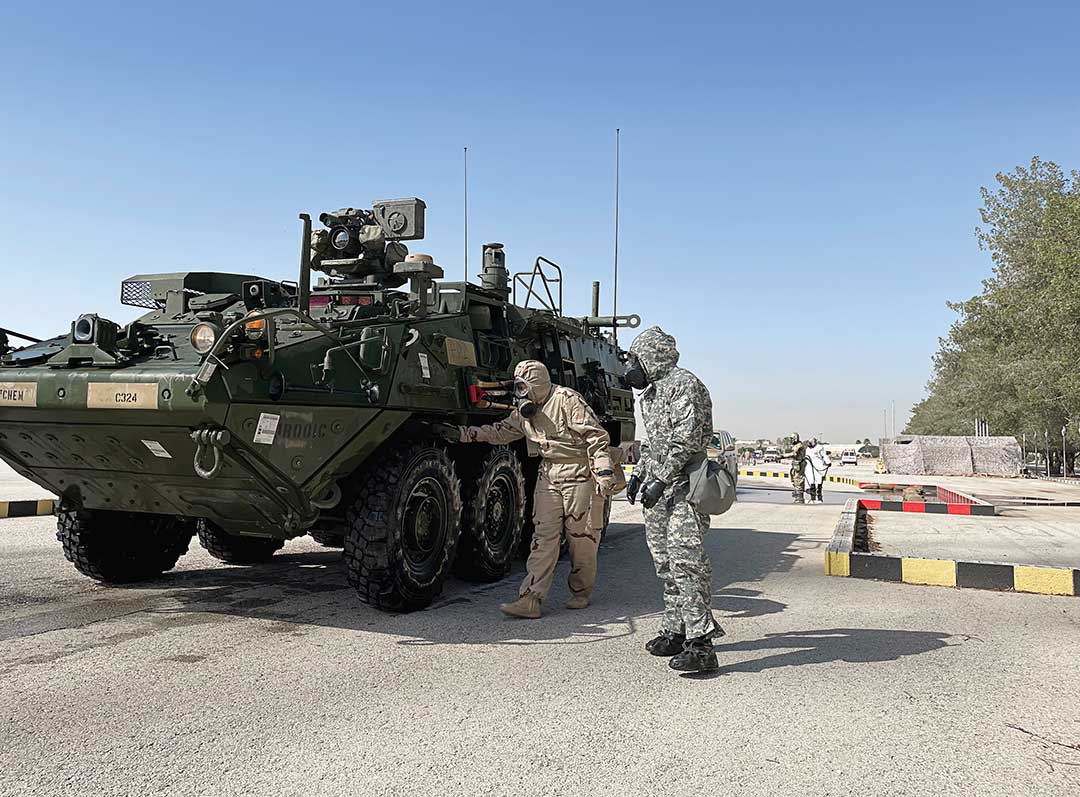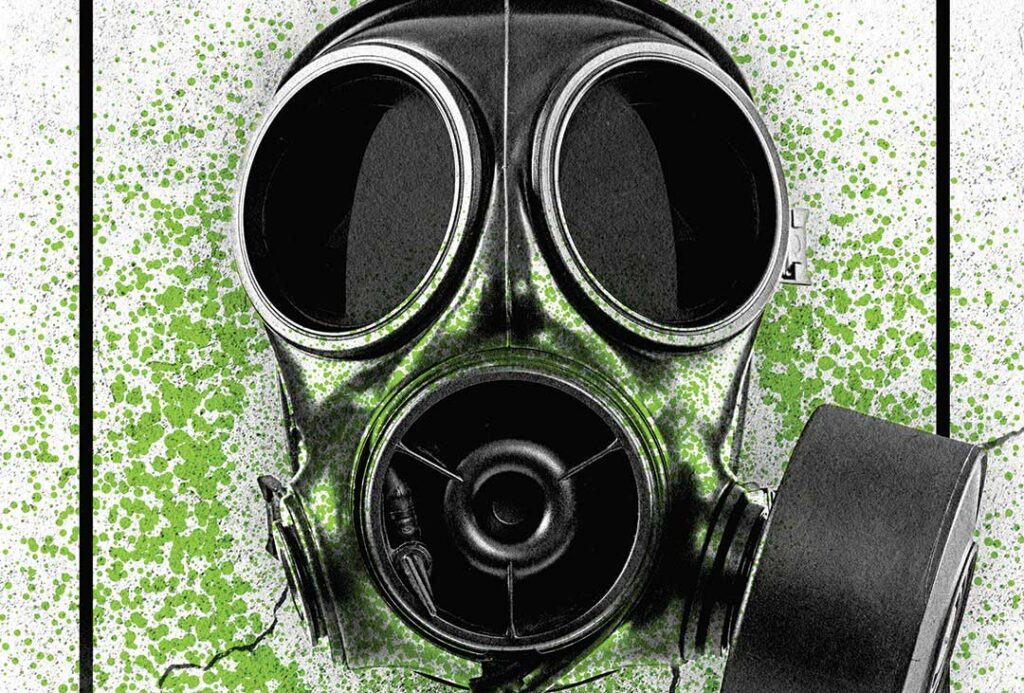UNIPATH STAFF

Saudi 5th Air Defense
Focused mostly on simulated chemical weapons attacks, Protection Shield 3, a 2022 military exercise in Dammam, Saudi Arabia, attracted participation from more than 320 personnel. They came from the Saudi Armed Forces, the Civil Defense Authority of the Ministry of Interior, the Red Crescent, the Ministry of Health and supporting American units.
Three Saudi officers most involved in the exercise spoke to Unipath about what the exercise achieved in warding off asymmetric threats to the region. They are Maj. Gen. Khalid Abu Qais, commander of the Saudi 5th Air Defense, Exercise Director Brig. Gen. Saeed Al Shahrani and Chief Exercise Planner Col. Sami Al-Alyan.
UNIPATH: How does Protection Shield simulate the tactical challenges faced by Air Defense Force personnel in the region?
Maj. Gen. Abu Qais: All state facilities and capabilities face the challenges and threats posed by weapons of mass destruction that aim to prevent them from performing their duties, especially military capabilities. Air defense is one of the prime targets for adversaries to neutralize capabilities in this field. Therefore, training to confront this type of threat is of paramount importance for Air Defense units to increase their readiness to face this type of threat and to maintain their capabilities to perform tasks.
UNIPATH: The exercise included a scenario that concerns all armies globally: drone attacks by hostile forces. How does the exercise help your forces defend themselves against countries that support terrorism?
Maj. Gen. Abu Qais: The use of drones is a major turning point in warfare, and it has become a significant concern for the majority of armies worldwide. Their danger increases when they are loaded with weapons of mass destruction, which is one of the scenarios practiced in this exercise. We believe this will contribute to increasing the level of training and readiness to face this threat and eliminate the risks inherent in these threats. The exercise aimed to maintain units’ ability to consistently fulfill missions.
UNIPATH: What objectives did you want to accomplish from the exercise?

Brig. Gen. Al Shahrani: The main purpose of developing these exercises is so all state agencies, both civilian and military, reach an advanced and professional level in crisis management of incidents resulting from weapons of mass destruction. It was not the first event of its kind, because a number of exercises preceded it, and the main challenge is to integrate the capabilities from various training to conduct the exercise at a set time and place harmoniously and competently. The exercise focused on three main scenarios: a ballistic missile attack, an improvised explosive device (IED) planted by terrorists, and a drone attack. All of these methods are capable of carrying a chemical agent. The response teams arrived in record time and were highly professional. The success of the drills exceeded my initial expectations.
UNIPATH: How important was the participation of the U.S. in this exercise?
Maj. Gen. Abu Qais: The unit taking part in the exercise from the American side has a high level of competency in terms of personnel and equipment, hence the importance of this partnership, and this was reflected in the level of performance in the exercise. Participation was highly effective due to the efficiency of personnel and equipment, the seriousness of purpose, and the overall enthusiasm to exchange expertise at the highest levels.
UNIPATH: How long did it take to plan and prepare for the exercise?

Col. Al-Alyan: Planning for Protection Shield 3 began in February 2020, but because of the coronavirus pandemic, planning meetings were postponed until 2021. During this period, scenarios were updated to match security threats in the region. We constantly communicated with the allied side to determine the suitable time and place to conduct the exercise, and this communication and teamwork were reflected positively in the exercise outcome. The title of the exercise is “management of crises resulting from weapons of mass destruction.” This means that the planning and selection of scenarios would be within the joint action training framework for government forces and institutions in response to a chemical weapons attack, and how to decontaminate equipment and rescue casualties. Accordingly, three scenarios were chosen to simulate the threats posed by potential terrorist attacks that the kingdom faces specifically, and the region in general, and how to prevent them.
UNIPATH: How long did it take to transport the heavy equipment of the U.S. forces to Dammam?
Col. Al-Alyan: The Saudi Armed Forces had made preparations and facilitated the transfer of equipment as quickly as possible. The heavy equipment was transferred in record time, in under four days. We have gained experience alongside the U.S. in transporting military equipment, and we are always working to develop a logistical transport mechanism that will ready us to transport military equipment in record time.

UNIPATH: How important is maintaining a united front to eliminate the threat of weapons of mass destruction?
Col. Al-Alyan: Nations in the region, and all nations worldwide, face a direct and indirect threat from weapons of mass destruction. All nations, especially allied and neighboring nations, must take part to combat weapons of mass destruction to confront this potential danger. Terrorists do not care about the lives of innocent people and do not respect international law and are ready to use any means to destroy cities and kill innocent people. Therefore, we must be fully vigilant to prevent adversaries from obtaining weapons of mass destruction and train ourselves on how to deal with and eliminate these types of universally prohibited weapons.

